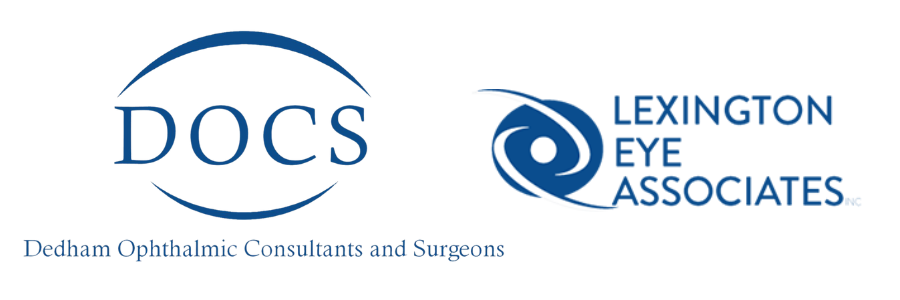A Season by Season Breakdown for Maintaining Healthy Eyes Throughout the Year
Fall is rapidly approaching. Your eyes have been taking a beating from the hot summer sun and now comes time for atmospheric changes and fall foliage. The following is a must-have checklist for maintaining healthy eyes throughout the year.
- Allergy season. The flowers are blooming, the grass is growing, and your allergies are kicking in full speed ahead. This time of year can leave you feeling frustrated and in a fog. The itchy eyes and runny nose is something you thought you had escaped when winter came to an end. Try to see what things might be triggering your allergies. Maybe the morning jog is tougher on your seasonal allergies than a late evening stroll? If changing habits, facial washes, food intake, and even sending your four-legged friends to the groomers do not improve things, visit your eye doctor for some assistance – especially if your eyes start to become red, watery, and swollen.
- Spring into new eyewear. Along with spring comes Spring fashion. New trends that inspire eyeglass frame designs and color are “blooming” up in every optical shop on the corner. Maybe your new spring look requires some sophisticated eyewear to accompany your “grown” image? Visit your eye doctor to see what eyewear is hot for this season. You can start by checking out our latest lines available in our optical shop.
- Sports eyewear. Nearly 90 percent of sports-related eye injuries are preventable with protective eyewear. Sports eyewear offer eye protection, color enhancement, light control and more. Consult with our optician to find the best sports eyewear to keep your eyes safe while enhancing your game.
- Safety glasses. Yardwork and spring season coincide with one another. Spring cleaning occurs in households across the country both inside and outside. Gardening and home improvement projects are underway. All of which can be dangerous to your eyes if you’re not wearing protective eyewear. Be sure to wear safety goggles before painting, spraying, mowing the lawn, or performing repairs on your home. Visit your eye doctor to inquire about prescription safety glasses.
- Sun protection is not just about wearing SPF all over your body or covering your head with a hat. Sun protection includes purchasing sunglasses for the entire family. It’s important to wear sunglasses all year long, but summertime is when little eyes really need protection from the sun’s harmful UV rays. It is important to remember that UV rays can damage your eyes even on cloudy days. It is also well known that wearing sunglasses can reduce the risk for cataracts and macular degeneration.
- Polarized sunglasses. Polarized lenses are known for severely reducing the glare of the sun for summertime activities such as boating, golf, and running.
- Swim Goggles. If you need corrective eyewear and contact lenses are your correction of choice, you should never wear them while swimming. Corrective swim goggles are a great alternative for that dip in the pool, jump in the waves, or dive into a lake. Swim goggles can protect your eyes from waterborne bacteria that can cause sight-threatening diseases. They will also imporve your vision for swimming, snorkeling, and underwater exploration. Protect your eyes while maintaining your good vision with polarized sun goggles.
- Eye exams. School is about to be back in session, so it is time to make sure your kids have comprehensive eye exams to help detect any possible vision problems that may impact your child’s ability to learn. In-school vision screenings are not a substitute for eye exams and you should consider having your child’s eyes dilated for a more thorough examination.
- Rest your eyes. If you’re spending more time indoors on a computer, or sit in front of a computer at work, remember to rest your eyes. Follow the “20-20-20” rule — take a break every 20 minutes and look at something that is at least 20 feet away for 20 seconds — to reduce your risk of computer vision syndrome.
- Stay active. Don’t let the colder weather keep you from exercising regularly. Staying active is good for your entire body and can help protect against diabetes, diabetic macular degeneration and more.
- Drink lots of fluids. The temptation to indulge in hot cider, warm cocoa, and a flavorful pumpkin latte is in full throttle during the fall season. It is okay to indulge, but be sure to get plenty of hydration in the form of water. If you do not get enough water, you can get dehydrated and your tear ducts won’t produce enough hydration to keep your eyes moist and comfortable. Symptoms of dehydration include redness, dryness, and puffy eyelids.
-
- Eat foods that are healthy for your eyes. Wintertime and the holidays can tempt the best of us from eating healthy. Be sure to continue to eat plenty of leafy greens, colorful fruits and foods containing omega-3 fatty acids which are good for eye health.
- Cosmetic surgery for healthier younger you. If the winter blues are bringing you down and you feel you are looking older than you should, cosmetic eye surgery for the correction of droopy eyelids or puffy bags under your eyes is just what the ophthalmic doctor ordered. Give yourself a younger appearance and, in some cases, even better vision. Schedule a consultation with our cosmetic eye surgeon to learn more.
- Quit smoking. No butts about it: Smoking is harmful to almost every organ in your body, including your eyes. Those who smoke are more likely to suffer from diminished vision as they age. If you are a smoker, the New Year is around the corner and a great time to make a resolution to kick the habit.
- Give the gift of vision. During the gift-giving holiday season, consider making a donation to a charity that helps to provide much-needed vision care services and eyeglasses to those in need.
We hope this year-round checklist for maintaining healthy vision proves useful for your eye care needs. Should you have any questions, please feel free to contact us at 781-251-2222 to schedule your next eye exam.








